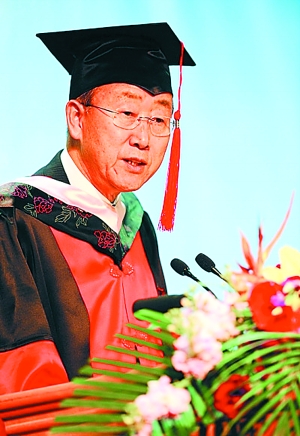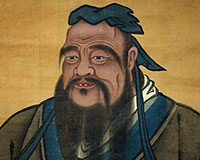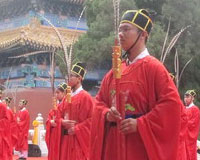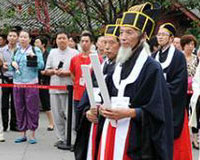President Xi Jinping became the first Chinese president to address an international meeting about the ancient Chinese philosopher Confucius (551-479BC) on Wednesday.
Confucianism, a system developed from Confucius' thoughts, is an ethical and philosophical system, which has become an influential part of Chinese culture.
A rich literary heritage of Confucianism has been left to the Chinese known as the Four Books and Five Classics: The Great Learning, The Mean, Analects, and Mencius; Book of Change, Book of History, Book of Odes, Book of Rites and Spring and Autumn Annals.
Confucianism means a lot not only to China, but also to the world. In 1988, 75 Nobel prizewinners said that if mankind is to survive it must go back 25 centuries in time to tap the wisdom of Confucius.
Today, extracts from Confucianism are frequently quoted by foreign dignitaries in their speeches or talks. Let’s take a glimpse into some of them.

UN Secretary-General Ban Ki-moon mentioned in 2014 at Nanjing University that one of the very important guidelines for him was the Confucian tradition. When talking about his decision to dedicate himself to public service, he cited a teaching of Confucianism in his speech,"Cultivate oneself, put family in order, govern the state, and pacify the world."(修身齐家治国平天下)
Ban Ki-moon explained that, "To put the world in order, you must first put your country in order; but to put the country in order, you must have a very harmonious family; and to put our family harmoniously in order, we must cultivate our personal life."
We recommend:

|

|

|
| Culture Insider: How Confucianism shaped China |
Ritual marks 2,565th birthday of Confucius |
Ceremony in honor of Confucius held in Sichuan |
